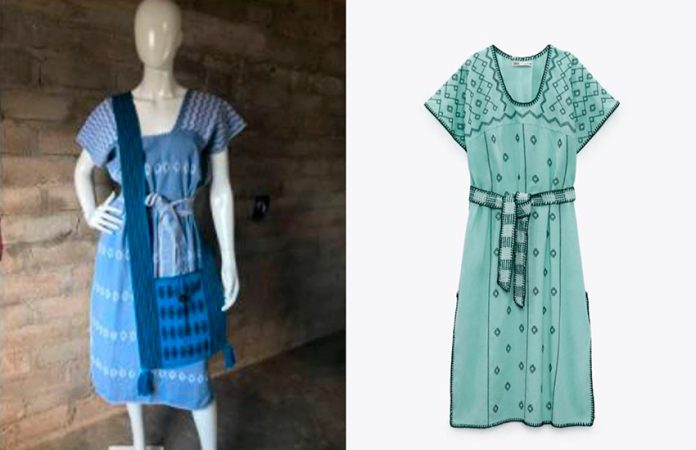The federal government has accused three international fashion brands of cultural appropriation of indigenous Mexican designs.
The Culture Ministry said in a statement it had sent letters to Zara, Anthropologie and Patowl in which it laid out its opposition to “improper cultural appropriation” and called on each company to provide a public explanation detailing “on what basis it could privatize collective property, making use of cultural elements whose origin is identified in several communities of Oaxaca.”
The ministry also called on the global brands to detail “the benefits that will be returned to the creative communities.”
It said that Zara, a Spanish brand, used a distinctive Mixtec pattern in one of its dresses. The pattern in question comes from San Juan Colorado, a municipality in the southwest of Oaxaca.
Inditex, the world’s biggest clothing retailer and the owner of Zara, rejected the cultural appropriation accusation in a statement sent to the news agency Reuters.
“The design in question was in no way intentionally borrowed from or influenced by the artistry of the Mixtec people of Mexico,” it said.
The Culture Ministry also accused Anthropologie, a United States brand, of using “elements distinctive and characteristic of the culture and identity of the Mixe people of Santa María Tlahuitoltepec, Oaxaca.”
The ministry said the offending garment was the brand’s Marka embroidered shorts.
In the case of Patowl, another U.S. brand, several printed shirts were identified as “faithful copies of traditional clothing of the indigenous Zapotec people of the community of San Antonino Castillo Velasco, Oaxaca, where pieces are made by hand with the technique called ‘hazme si puedes’ [make me if you can],” the ministry said. “This name reflects the complexity of the manufacturing process, which consists of several steps.”
Reuters said that neither URBN, the owner of Anthropologie, nor Patowl responded to its requests for comment.
The Culture Ministry said its letters, signed by Culture Minister Alejandra Frausto, are part of its actions in “defense of the cultural heritage of indigenous communities to avoid the plagiarism of their elements of identity by national and transnational companies.”
The federal government and other authorities have previously accused several other international brands of plagiarizing indigenous Mexican designs.
Among them are Zimmerman, Isabel Marant, Carolina Herrera, Mango and Pippa Holt.
Some like Herrerra and Marant have said that their designs were done in tribute out of admiration for Mexican culture (although Marant eventually apologized for appropriating Purépecha work). Holt insisted she had done nothing wrong, that she pays individual Oaxaca artisans above market price for the rights to their designs. One company, Louis Vuitton, has changed tactics by connecting their customers with Oaxacan artisans, who receive payment directly from those customers for the work they do on Vuitton products.
Source: Reuters (en)
